Reminiscences of Lenin
Nadezhda K. Krupskaya
Also know as Krupskaya's Reminiscences of Lenin
Written: 1933
First Published in English by: International Publishers, 1970

Nadezhda Konstantinovna "Nadya" Krupskaya
26 February 1869 27 February 1939
Published by the Anarcho-Communist Institute as an e-book in 2015
More titles from us on Amazon Kindle:
http://www.amazon.com/s/ref=nb_sb_noss?url=search-alias%3Ddigital-text&field-keywords=anarcho-communist+institute&rh=n%3A133140011%2Ck%3Aanarcho-communist+institute
Another e-book from comrade Krupskaya, includes a short introduction:
http://www.amazon.com/Women-Help-Lenin-Studied-Marx-ebook/dp/B00X1NN3GQ/ref=sr_1_4?s=digital-text&ie=UTF8&qid=1431732345&sr=1-4&keywords=Anarcho-communist+institute
And connect with us on  for updates, discussion and more!
for updates, discussion and more!
https://www.facebook.com/pages/Anarcho-communist-institute/720648661296382?ref=hl
Table of Contents
Introduction
The reminiscences printed in this volume cover the period 1894 to 1917 from the time I first met Vladimir Ilyich up to the October Revolution. I have often been told that my reminiscences are rather sketchy. Everyone, of course, is eager to learn all he can about Ilyich, and besides, the epoch itself was one of tremendous historical importance. It saw the development of a mass movement among the workers, the creation of a strong staunch party of the working class, steeled under the most difficult conditions of underground activity and the steady growth of working-class consciousness and organization. It was an epoch of desperate struggle, which ended in the victory of the proletarian socialist revolution.
Heaps of interesting articles and books could be written both about that epoch and about Ilyich. The purpose of these reminiscences is to give a picture of the conditions under which Vladimir Ilyich lived and worked.
I wrote only of those things which stood out most vividly in my memory. These reminiscences were written in two stages. Part I, covering the period 1894-1907, was written a few years after Lenin's death. It contains recollections relating to his work in St. Petersburg, to the time of his Siberian exile, the Munich and London periods of his first emigration, the period preceding the Second Congress of the Party, the Second Congress itself and the period immediately following it right up to 1905. Then come recollections of 1905 both in Russia and abroad, and finally of the period 1905-1907. I wrote them for the most part at Gorki, where I roamed about the large house and the overgrown paths of the park in which Ilyich had spent the last year of his life. The years 1894-1907 saw the upsurge of the young working-class movement, and one's thoughts were involuntarily drawn back to that period, when the foundations of our Party were laid. I wrote the first part almost entirely from memory. The second part was written a few years later.
One had to study very hard during those years, to reread Lenin sedulously, to learn to link up the past with the present, to learn how to live with Ilyich without Ilyich. And so the second part of the book differs from the first. The first has a more personal touch, the second deals more with Ilyich's interests and thoughts. I think both parts should preferably be read together. The first part is closely linked with the second, and the latter, if read alone, may strike the reader as being less "reminiscential" than it really is.
Part II of the reminiscences was written at a time when many other recollections and symposiums, as well as the second edition of Lenin's Works , had come off the press. This, to a certain extent, determined the character of the reminiscences of the second period of emigration. It enabled me to check up on myself. Moreover, the period they deal with (1908-1917) was far more complex than the first.
The first period (1893-1907) covered the early steps of the working-class movement, the efforts to build up a Party, the rising wave of the first revolution directed chiefly against tsarism, and the defeat of that revolution.
The second period that of the second emigration was far more involved. It was a summing up of the revolutionary struggle of the first period, a period of struggle against the reaction, a period of fierce struggle against opportunism of every kind and description, a struggle for the necessity of adapting our work to every kind of condition without any falling off in its revolutionary content.
The period of second emigration was a period of impending world war, when opportunism in the working-class parties led to the collapse of the Second International, when entirely new problems faced the world proletariat, when new paths had to be laid, and the foundation of the Third International built up stone by stone, when the struggle for socialism had to be started under the most adverse conditions. In emigration, all these problems were sharply focussed and concrete.
Unless these problems are understood it is impossible for anyone to grasp how Lenin rose to be the leader of October, the leader of the world revolution. Leaders are formed in and grow out of the struggle, from which they draw their strength. No reminiscences of Lenin during the period of emigration are conceivable that do not link up every detail of his life with the struggle that he waged at that time.
The nine years of his second emigration had not changed Ilyich a bit. He worked just as hard and as methodically, he took the same keen interest in every little detail, was able to put two and two together and had lost none of his ability to see the truth and face it, no matter how bitter it was. He hated oppression and exploitation as cordially as ever, was just as devoted to the cause of the proletariat, the cause of the working people, and took their interests just as closely to heart. His whole life was bound up with that cause. It came naturally to him, he could not live in any other way. He fought opportunism and all and every backdown as passionately and sharply as ever. He was still capable of breaking with his closest friends if he saw them acting as a drag on the movement; he would go up to yesterday's opponent in a simple comradely way, if it was essential to the cause, and say what he had to say frankly and bluntly as he had always done. He was just as fond of nature, of the spring woods, the mountain oaths and lakes, the noise of the big cities, the working-class crowd; he loved his comrades, movement, struggle, life in all its numerous facets. The same Ilyich, except that, watching him day by day, one would notice that he had become more reticent, still more kindly towards people, and that he would often lapse into meditation, roused from which his eyes would have a fleeting shadow of sadness in them.
Those years of emigration had been trying ones, and had taken their toll of Ilyich's strength. But they had moulded a fighter out of him, the kind of fighter the masses needed to lead them to victory.
N. Krupskaya
Part I.
St. Petersburg
1893-1898
Vladimir Ilyich came to St. Petersburg in the autumn of 1893, but I did not get to know him until some time later. Comrades told me that a very erudite Marxist had arrived from the Volga. Afterwards I was given a pretty well-thumbed copy-book "On Markets" to read. The manuscript set forth the views of technologist Herman Krasin, our St. Petersburg Marxist, on the one hand, and those of the newcomer from the Volga on the other. The copy-book was folded down the middle, and on one side H. B. Krasin had set forth his views in a scrawly hand with many crossings out and insertions, while on the other side the newcomer had written his own remarks and objections in a neat hand without any alterations.
Next page
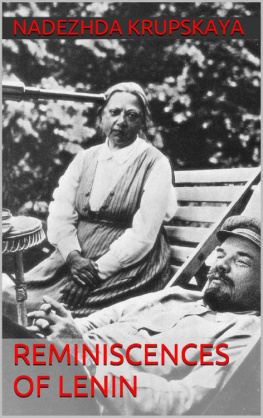
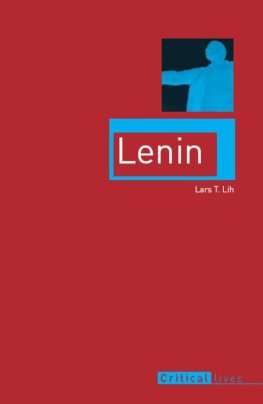

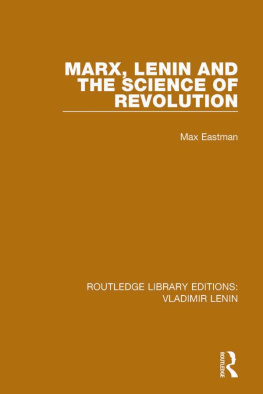
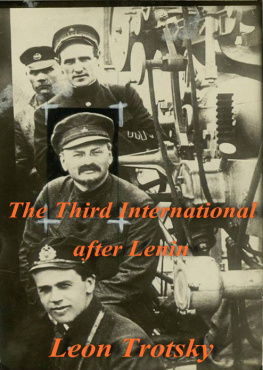
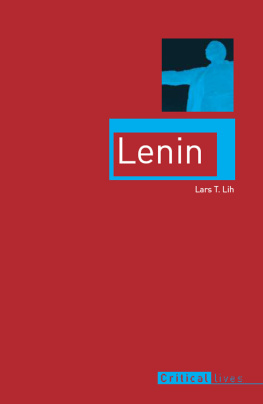

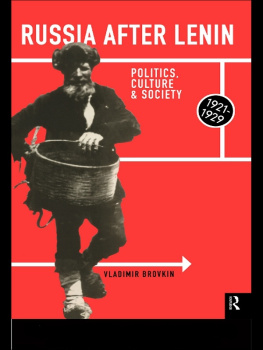

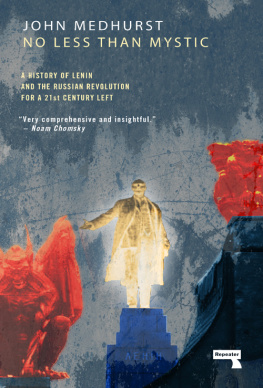


 for updates, discussion and more!
for updates, discussion and more!